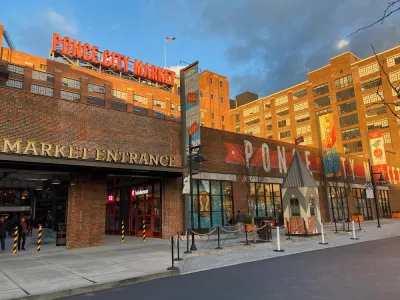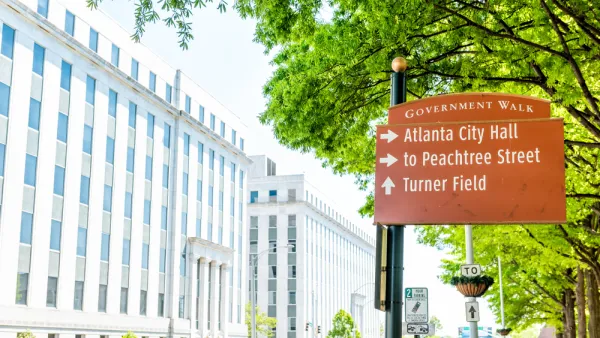The city of Atlanta has released an analysis of the first three years of an Inclusionary Zoning policy for neighborhoods around the Beltline.

The city of Atlanta has completed an initial evaluation of the city's Inclusionary Zoning program, instituted at the beginning of 2018.
Pamela Miller reports on the details of the report, noting that the city's Inclusionary Zoning program " was created to create more affordable housing for low-and-moderate income residents in Atlanta."
"As of December 2020, there were 362 dedicated affordable units in some stage of development in compliance with the Inclusionary Zoning program," reports Miller of the report's findings.
Previous experiences in other cities cautions against going so far with Inclusionary Zoning requirements that developments are no longer financially viable. Atlanta seems to have avoided that consequence, however. "The report also shows that overall multifamily development in the Inclusionary Zoning area continued to grow, despite the new affordability requirements of the program." Georgia State Professor Dan Immergluck tweeted the evidence that the city's Inclusionary Zoning program has not quelled multi-family development.
ATL adopted inclusionary zoning around BeltLine 1/2018. (*after* 6-yr apartment boom).
Developers argued IZ killed apartment building, likely to preempt suggestions to expand citywide.
I was skeptical, esp since IZ was not strong.
New data: Definitely didn't kill market. 1/2 pic.twitter.com/BypBE5POqf— Dan Immergluck (@DanImmergluck) February 9, 2021
"Inclusionary Zoning ties the production of market-rate housing to dedicated affordable housing, and in Atlanta, the IZ program requires that a percentage of new multifamily units developed in areas around the Beltline and Westside neighborhoods are rented at affordably," according to Miller's geographically specific explanation of the program.
An article by Anthony Flint, published in February 2019, provides an authoritative explanation of Inclusionary Zoning and its growing popularity as an affordable housing tool in U.S. cities.
Since adopting Inclusionary Zoning in the parts of the city, Atlanta has ramped up its affordable housing efforts with the various components of the "One Atlanta Housing Affordability Action Plan," which commits to protecting or creating 20,000 affordable housing units in the city.
FULL STORY: City of Atlanta reports on first three years of inclusionary zoning

Analysis: Cybertruck Fatality Rate Far Exceeds That of Ford Pinto
The Tesla Cybertruck was recalled seven times last year.

National Parks Layoffs Will Cause Communities to Lose Billions
Thousands of essential park workers were laid off this week, just before the busy spring break season.

Retro-silient?: America’s First “Eco-burb,” The Woodlands Turns 50
A master-planned community north of Houston offers lessons on green infrastructure and resilient design, but falls short of its founder’s lofty affordability and walkability goals.

Test News Post 1
This is a summary

Analysis: Cybertruck Fatality Rate Far Exceeds That of Ford Pinto
The Tesla Cybertruck was recalled seven times last year.

Test News Headline 46
Test for the image on the front page.
Urban Design for Planners 1: Software Tools
This six-course series explores essential urban design concepts using open source software and equips planners with the tools they need to participate fully in the urban design process.
Planning for Universal Design
Learn the tools for implementing Universal Design in planning regulations.
EMC Planning Group, Inc.
Planetizen
Planetizen
Mpact (formerly Rail~Volution)
Great Falls Development Authority, Inc.
HUDs Office of Policy Development and Research
NYU Wagner Graduate School of Public Service



























